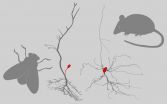Reflections on current state of situation awareness topic of JCEDM special issue
2015-04-21
(Press-News.org) Over the past 25 years, the construct of situation awareness (SA), or the perception and interpretation of what is happening around you, has been a catalyst for new advances in the human factors/ergonomics field, particularly in the areas of information display, automation, and training.
But recent advances also raise new questions, such as these: To what extent is SA about "awareness in the head" versus "awareness of where to look around you"? How is the process of maintaining SA affected by workload? Is it possible to have high-level SA about, for example, the progress of the mission while also being fuzzy on some of the immediate details? And what does a worker need to be aware of, anyway?
The March special issue of the Journal of Cognitive Engineering and Decision Making features reflections and commentaries from highly regarded authors on these questions. Articles presented in this special issue include the following:
"Situation Awareness Misconceptions and Misunderstandings," Mica R. Endsley
"A Situated Approach to the Understanding of Dynamic Situations," Dan Chiappe, Thomas Z. Strybel, and Kim-Phuong L. Vu
"Finding Common Ground: Situation Awareness and Cognitive Work Analysis," Dev Minotra and Catherine M. Burns
"Origins of Situation Awareness: Cautionary Tales from the History of Concepts of Attention," Robert Hoffman
"Situation Awareness: Its Applications and Its Fuzzy Dichotomies," Christopher D. Wickens
"I am pleased that this issue of JCEDM continues the tradition and updates the community on the current state of the art," said Editor-in-Chief Amy Pritchett. "The discussions range from the theoretical to the very practical, and they all contribute diverse perspectives on a topic that remains central to many complex work domains today. I hope this special issue provides an intriguing, comprehensive discussion of the key points our community faces at this time."
INFORMATION:
To access the March special issue, go to http://edm.sagepub.com/. Questions about the journal or HFES may be directed to HFES Communications Director Lois Smith (310/394-1811; lois@hfes.org).
The Human Factors and Ergonomics Society is the world's largest scientific association for human factors/ergonomics professionals, with more than 4,800 members globally. HFES members include psychologists and other scientists, designers, and engineers, all of whom have a common interest in designing systems and equipment to be safe and effective for the people who operate and maintain them. "Human Factors and Ergonomics: People-Friendly Design Through Science and Engineering"
Save the date for the 2015 International Annual Meeting, to be held October 26-30 in Los Angeles.
ELSE PRESS RELEASES FROM THIS DATE:
2015-04-21
Men with prostate cancer benefit from treatment with the pioneering drug olaparib - the first cancer drug to target inherited mutations - according to the results of a major trial presented today (Tuesday).
Olaparib was licensed in December for women with ovarian cancer and inherited BRCA mutations, but the new research suggests it could also benefit men with genomic faults within their tumours.
Researchers told the American Association of Cancer Research (AACR) conference in Philadelphia that up to 30 per cent of men with advanced prostate cancer had tumours with defects ...
2015-04-21
Human activity has removed more than one-tenth of trees and plants from the Amazon rainforest since the 1960s, a study shows.
Widespread removal of trees has contributed to a rise in the amount of carbon dioxide in the atmosphere, increasing the potential impact of climate change, researchers say.
Deforestation of the Amazon accounted for 1.5 per cent of the increase in carbon dioxide levels seen since the mid-nineteenth century, the team says.
However, this increased the total amount of carbon found in the atmosphere only very slightly compared with fossil fuel ...
2015-04-21
New research shows that fishing is having a significant impact on the make-up of fish populations of the Great Barrier Reef.
It's long been known that environmental impacts such as climate change and pollution are amongst the drivers of change on the Great Barrier Reef.
Now researchers from the ARC Centre of Excellence for Coral Reef Studies (Coral CoE) at James Cook University have found that removing predatory fish such as coral trout and snapper, through fishing, causes significant changes to the make-up of the reef's fish populations.
"A stable and healthy reef ...
2015-04-21
Nerve cells come in very different shapes. Researchers at the Bernstein Center Berlin now reveal why, in insects, the cell body is usually located at the end of a separate extension. Using mathematical models, they show that this increases the strength of electrical signal transmission at no additional energetic cost.
Nerve cells follow a functional design: They receive input signals over more or less ramified cell branches (dendrites), which they forward to other nerve cells along an elongated, thin cell process (axon). The cell body contains the nucleus with genetic ...
2015-04-21
A new study has found that internet discussion forums have positive links to well-being and are even associated with increased community engagement offline, contrary to a common perception of them being outdated and prone to trolling.
Research just published in the journal Computers in Human Behavior found that online forums have benefits for both individuals and wider society and are of greater importance than previously realised.
Although seemingly eclipsed in the past decade by social networking sites such as Facebook and Twitter, forums are still regularly used ...
2015-04-21
The U.S. Congress successfully hears the "supermajority" consensus on the reality and causes of climate change, according to scientists from Texas A&M University, Idaho State University, and University of Oklahoma. In a paper published in Climatic Change, the scientists suggest looking at business interests, partisan predispositions and political ideology for the hurdles to policy action.
"Different perceptions and claims among lawmakers are a major hurdle to agreeing on action to address global warming and these were thought to simply reflect scientific uncertainty," ...
2015-04-21
A number of research studies have shown that coffee helps to protect against breast cancer. A new study led by Lund University, has confirmed that coffee inhibits the growth of tumours and reduces the risk of recurrence in women who have been diagnosed with breast cancer and treated with the drug tamoxifen.
The study, which is a follow-up of the results the researchers obtained two years ago, was carried out at Lund University and Skåne University Hospital, in collaboration with researchers in the UK.
"Now, unlike in the previous study, we have combined information ...
2015-04-21
Dietary recommendations support the consumption of dairy products as part of a healthy diet. However, after a Spanish study involving more than 4,000 people analysed the relationship between the regular intake of yogurt and health-related quality of life, it declared that there was no link with the improvement of the physical and mental parameters analysed.
For years various researchers have stated the benefits of eating yogurt on a regular basis although its effectiveness has never been proven. In fact, until now, few studies have specifically examined the effect of ...
2015-04-21
BOSTON - Boston Medical Center (BMC) pathologists have developed a set of protocols for processing and preserving forensic evidence, such as shrapnel, bullets and other projectiles, in surgical specimens (i.e. amputated limbs, injured organs, etc.) after a terrorist attack based on lessons learned from the Boston Marathon bombing. Their findings are published online in advance of print in the Archives of Pathology and Laboratory Medicine.
As a result of the Boston Marathon bombings in 2013, three people were killed and 264 others were injured - some suffering from injuries ...
2015-04-21
PHILADELPHIA -- While genetics play a substantial role in development of neuroblastoma, scientists say that something else is in play that elevates the risk: stress.
Researchers from Georgetown University Medical Center have shown in mice genetically predisposed to develop neuroblastoma that maternal stress can push onset of the cancer. Their study will be presented at the American Association for Cancer Research (AACR) Annual Meeting 2015.
"To our knowledge, this is the first evidence of the role of prenatal stress in development of neuroblastoma," says Joanna Kitlinska, ...
LAST 30 PRESS RELEASES:
[Press-News.org] Reflections on current state of situation awareness topic of JCEDM special issue

